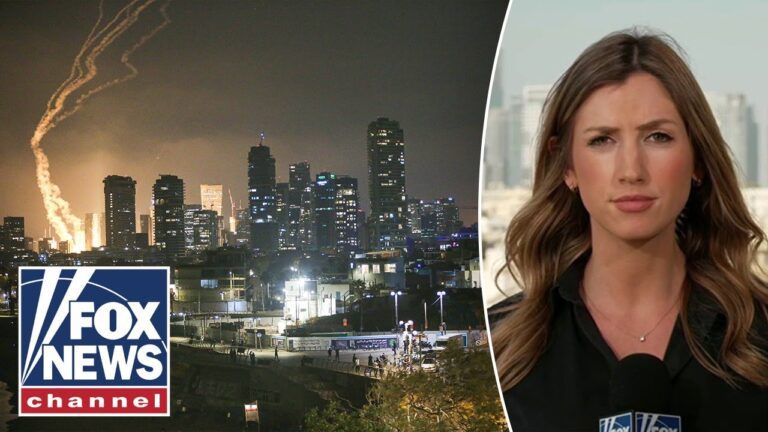Video at the bottom!
In a tense and rapidly escalating situation between Israel and Iran, the Israeli Defense Forces (IDF) have taken a proactive stance in targeting Iranian military capabilities. Reports from Tel Aviv indicate that the IDF has stated it will continue to carry out actions deep within Iran, with the ability to target around 150 locations. This comes on the heels of intense exchanges in the region, including Israel intercepting a significant number of Iranian drones and missiles over recent days. Despite intercepting 100 drones yesterday, some missiles breached Israeli air defenses, leading to fatalities and injuries among civilians.
The ongoing conflict saw explosions throughout Jerusalem, with Iran launching over 200 missiles, resulting in three deaths and approximately 70 injuries. Medics have been seen assisting displaced civilians, highlighting the human impact of the strikes. Meanwhile, Israel has been targeting military sites within Iran, and footage has emerged showing smoke rising from Tehran’s international airport. Israeli military officials claim to have hit multiple Iranian military systems and eliminated key commanders.
Amidst these developments, Iranian leadership is accusing Israel of waging war. A senior Iranian official stated that Israel’s actions would have ramifications, as Iran has enriched uranium up to 60%. The Director General of the International Atomic Energy Agency confirmed damage at an Iranian facility, although radiological levels remain normal and pose no immediate danger to the local populace.
In the U.S., President Trump expressed hope that Israel’s military actions could prompt Iran to return to the negotiating table. However, Iranian officials have dismissed the idea of further talks, claiming any negotiations would be unjustifiable. As tensions rise, U.S. military officials have confirmed assistance in intercepting Iranian missiles aimed at Israel, while the White House monitors the situation closely.
Defense Secretary Pete Hegseth indicated a strong U.S. military presence in the region, affirming protection for American personnel. Commentary from political leaders spanned across party lines, with the consensus being that Iran must not be allowed to develop nuclear weapons, although some expressed the need for restraint.
Experts weigh in on the repercussions of these military actions, with discussions surrounding the potential effectiveness of Israeli strikes on Iran’s nuclear ambitions. The challenge lies in ensuring Iran’s nuclear capabilities are thoroughly dismantled, as the ambiguity surrounding the extent of damage makes it difficult to gauge success.
As speculation mounts regarding Iran’s next moves, there are concerns about possible escalation. Previous threats to close the Strait of Hormuz highlight Iran’s ability to leverage its position in international oil shipping lanes, although this threat carries varying implications compared to previous years. Experts note that activating sleeper cells or terrorist networks represents a more immediate and dangerous method of retaliation for Iran, which could lead to direct confrontations with U.S. interests or allies.
Overall, the situation remains precarious, with the potential for both sides to escalate their military postures in the coming days.


